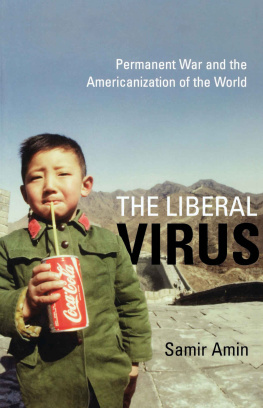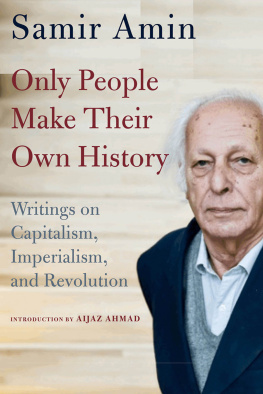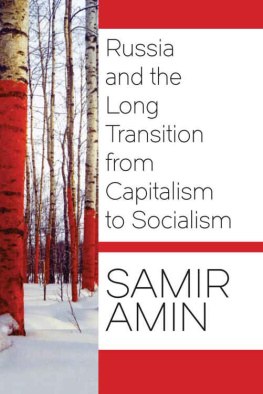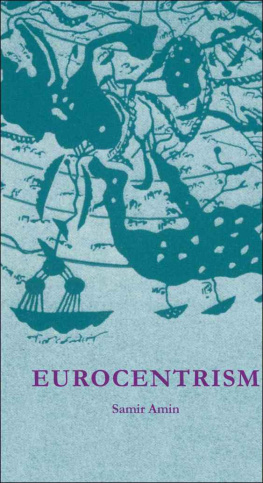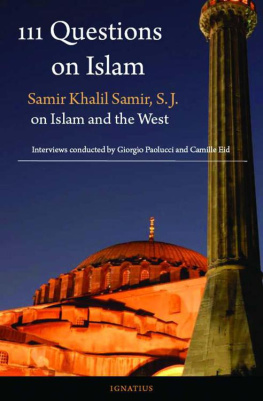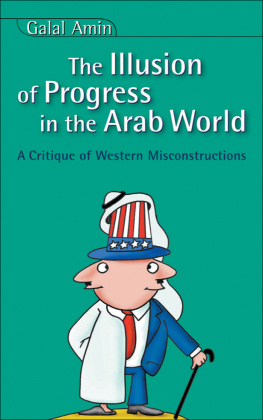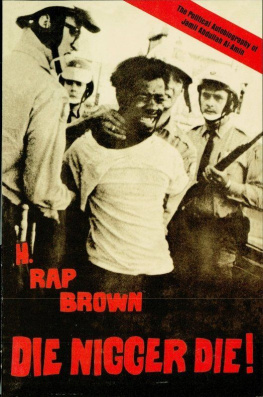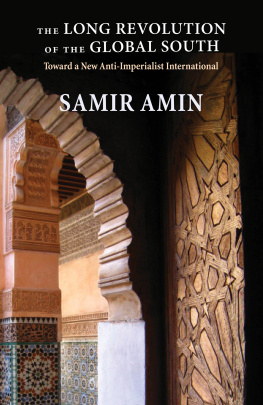Samir Amin - The Liberal Virus: Permanent War and the Americanization of the World
Here you can read online Samir Amin - The Liberal Virus: Permanent War and the Americanization of the World full text of the book (entire story) in english for free. Download pdf and epub, get meaning, cover and reviews about this ebook. year: 2019, publisher: Monthly Review Press, genre: Politics. Description of the work, (preface) as well as reviews are available. Best literature library LitArk.com created for fans of good reading and offers a wide selection of genres:
Romance novel
Science fiction
Adventure
Detective
Science
History
Home and family
Prose
Art
Politics
Computer
Non-fiction
Religion
Business
Children
Humor
Choose a favorite category and find really read worthwhile books. Enjoy immersion in the world of imagination, feel the emotions of the characters or learn something new for yourself, make an fascinating discovery.
- Book:The Liberal Virus: Permanent War and the Americanization of the World
- Author:
- Publisher:Monthly Review Press
- Genre:
- Year:2019
- Rating:5 / 5
- Favourites:Add to favourites
- Your mark:
- 100
- 1
- 2
- 3
- 4
- 5
The Liberal Virus: Permanent War and the Americanization of the World: summary, description and annotation
We offer to read an annotation, description, summary or preface (depends on what the author of the book "The Liberal Virus: Permanent War and the Americanization of the World" wrote himself). If you haven't found the necessary information about the book — write in the comments, we will try to find it.
The Liberal Virus: Permanent War and the Americanization of the World — read online for free the complete book (whole text) full work
Below is the text of the book, divided by pages. System saving the place of the last page read, allows you to conveniently read the book "The Liberal Virus: Permanent War and the Americanization of the World" online for free, without having to search again every time where you left off. Put a bookmark, and you can go to the page where you finished reading at any time.
Font size:
Interval:
Bookmark:
the liberal virus
THE LIBERAL VIRUS
Permanent War and the Americanization of the World
by SAMIR AMIN
Translated by JAMES H. MEMBREZ

MONTHLY REVIEW PRESS
New York
Copyright 2004 MONTHLY REVIEW PRESS
All rights reserved
Library of Congress Cataloging-in-Publication Data
Amin, Samir.
[Virus libral. English]
The liberal virus : permanent war and the Americanization of the world / by Samir Amin ; translated by James Membrez.
p. cm.
Translation of: Le virus libral.
Includes bibliographical references and index.
ISBN 1-58367-107-2 (pbk.) ISBN 1-58367-108-0 (cloth)
1. LiberalismUnited States. 2. Imperialism. 3. United StatesMilitary policy. I. Title.
JC574.2.U6A46 2004
320.510973DC22
2004009353
MONTHLY REVIEW PRESS
146 West 29th Street, Suite 6W
New York NY, 10001
www.monthlyreview.org
Contents
Introduction
TOWARDS THE END OF THE TWENTIETH CENTURY a sickness struck the world. Not everyone died, but all suffered from it. The virus which caused the epidemic was called the liberal virus. This virus made its appearance around the sixteenth century within the triangle described by Paris-London-Amsterdam. The symptoms that the disease then manifested appeared harmless. Men (whom the virus struck in preference to women) not only became accustomed to it and developed the necessary antibodies, but were able to benefit from the increased energy that it elicited. But the virus traveled across the Atlantic and found a favorable place among those who, deprived of antibodies, spread it. As a result, the malady took on extreme forms.
The virus reappeared in Europe towards the end of the twentieth century, returning from America where it had mutated. Now strengthened, it came to destroy a great number of the antibodies that the Europeans had developed over the course of the three preceding centuries. It provoked an epidemic that would have been fatal to the human race if it had not been for the most robust of the inhabitants of the old countries who survived the epidemic and finally were able to eradicate the disease.
The virus caused among its victims a curious schizophrenia. Humans no longer lived as whole beings, organizing themselves to produce what is necessary to satisfy their needs (what the learned have called economic life) and simultaneously developing the institutions, the rules, and the customs that enable them to develop (what the same learned people have called political life), conscious that the two aspects of social life are inseparable. Henceforth, they lived sometimes as homo oeconomicus, abandoning to the market the responsibility to regulate their economic life automatically, and sometimes as citizens, depositing in ballot boxes their choices for those who would have the responsibility to establish the rules of the game for their political life.
The crises of the end of the twentieth century and the beginning of the twenty-first century, now happily and definitively left behind, were articulated around the confusions and impasses provoked by this schizophrenia. Reasonthe true one, not the American onefinally caused it to disappear. Everyone survived, Europeans, Asians, Africans, Americans, and even Texans, who have much changed since and become human beings like the others.
I have chosen this happy ending, not through some incorrigible optimism, but because in the other hypothesis there would no longer be anyone left to write history. In that version, Fukuyama was right: liberalism truly announced the end of history. All of humanity perished in the holocaust. The last survivors, the Texans, were organized into a wandering band and then immolated in turn, on the orders of the chief of their sect, whom they had believed to be a charismatic figure. He too was named Bush.
I imagine that the history of our epoch will be written somewhat in these terms. In any case, it is in the same terms that I here propose to analyze these crises.
I The Liberal Vision of Society
THE GENERAL IDEAS which govern the dominant liberal vision of the world are simple and may be summarized in the following terms:
Social effectiveness is equated by liberals with economic efficiency which, in turn, is confounded with the financial profitability of capital. These reductions express the dominance of the economic, a dominance characteristic of capitalism. The atrophied social thought derived from this dominance is economistic in the extreme. Curiously, this reproach, wrongly directed at Marxism, in fact characterizes capitalist liberalism.
The development of the generalized market (the least regulated possible) and of democracy are decreed to be complementary to one another. The question of conflict between social interests which are expressed through their interventions in the market and social interests which give meaning and import to political democracy is not even posed. Economics and politics do not form two dimensions of social reality, each having their own autonomy, operating in a dialectical relationship; capitalist economics in fact governs the political, whose creative potential it eliminates.
Apparently, the most developed country, the one in which the political is actually conceived and practiced entirely in the exclusive service of the economy (of capital, in fact)obviously the United Statesis held to be the best model for all. Its institutions and practices should be imitated by all those who hope to be contemporary with the world scene.
There is no alternative to the proposed model, which is founded on economistic postulates, the identity of the market and democracy, and the subsumption of the political by the economic. The socialist option attempted in the Soviet Union and China demonstrated that it was both inefficient in economic terms and antidemocratic in the political sphere.
In other words, the propositions formulated above have the virtue of being eternal truths (the truths of Reason) revealed by the unfolding of contemporary history. Their triumph is assured, particularly since the disappearance of the alternative socialist experiments. We will all truly arrive, as has been said, at the end of history. Historical Reason has triumphed. This triumph means then that we live in the best of all possible worlds, at least potentially, in the sense that it will be so when its founding ideas are accepted by everyone and put into practice everywhere. All the defects of todays reality are due only to the fact that these eternal principles of Reason are not yet put into practice in the societies that suffer from these deficiencies, particularly those in the global South.
The hegemonism of the United States, a normal expression of its avant-garde position in using Reason (inevitably liberal), is thus both unavoidable and favorable to the progress of the whole of humanity. There is no American imperialism, only a noble leadership (benign or painless, as liberal American intellectuals qualify it).
These ideas are central to the liberal vision. In fact, as we will see in what follows, these ideas are nothing but nonsense, founded on a para-scienceso-called pure economicsand an accompanying ideologypostmodernism.
Pure economics is not a theory of the real world, of really-existing capitalism, but of an imaginary capitalism. It is not even a rigorous theory of the latter. The bases and development of the arguments do not deserve to be qualified as coherent. It is only a para-science, closer in fact to sorcery than to the natural sciences which it pretends to imitate. As for postmodernism, it only forms an accompanying discourse, calling upon us to act only within the limits of the liberal system, to adjust to it.
Next pageFont size:
Interval:
Bookmark:
Similar books «The Liberal Virus: Permanent War and the Americanization of the World»
Look at similar books to The Liberal Virus: Permanent War and the Americanization of the World. We have selected literature similar in name and meaning in the hope of providing readers with more options to find new, interesting, not yet read works.
Discussion, reviews of the book The Liberal Virus: Permanent War and the Americanization of the World and just readers' own opinions. Leave your comments, write what you think about the work, its meaning or the main characters. Specify what exactly you liked and what you didn't like, and why you think so.

